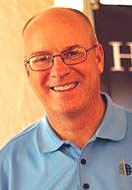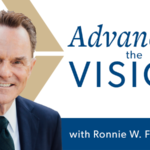
NASHVILLE, Tenn. (BP)–It’s always been a struggle to reach teenagers for Christ, but those born since 1984 may be the toughest to reach yet, said Christian researcher George Barna. Appearing on Richard Land’s “For Faith & Family” weekday radio show Feb. 4 and 5, Barna said the “Mosaic Generation” is comprised of non-linear thinkers who cut and paste their beliefs and values from a variety of sources.
What’s more, Barna said, almost half the Mosaics don’t know and don’t care about moral absolutes. To them, it’s just a non-issue not worth arguing over. This means, Barna said, that they’re a generation comfortable with contradictions.
Barna defines the Mosaic Generation as youngsters born between 1984 and 2002, describing them as such because they’re “very mosaic in every aspect of their life.” He said, “There’s [no attribute] that really dominates like you might have seen with prior generations.” Other researchers refer to this generation as Millennials or Generation Y.
“When we try to show them logically that two things really don’t work together — that either one is right and the other is wrong, or they’re both wrong — typically what you get is a giggle and then the response, ‘Yeah, how about that?'” Barna said. “They’re not really concerned about trying to figure out where things stand on an objective continuum.”
Richard Land, president of the Southern Baptist Convention’s Ethics & Religious Liberty Commission and host of For Faith & Family, said the research regarding the Mosaics shows America is cultivating a generation of mainly right-brained thinkers.
“I just want to make sure everybody understands that this is a radical departure from Western thought, at least since the time of the Renaissance,” Land said. He added that this way of thinking is so different from other generations that it’s like comparing a modern man to one from medieval times.
The For Faith & Family broadcast ministry is heard daily on nearly 600 radio stations across the country and around the world on the Internet at www.faithandfamily.com. Visitors to the program’s website can access archives of past For Faith & Family programs as well as listen to the Barna interviews. An audiotape of the two-part interview also can be ordered by calling 1-888-324-8450.
Barna said society has taught Mosaics to think in this different way through fast-edit videos, constant computer use and easy access video games. In addition, 91 percent of all Mosaics, compared to 51 percent of all adults, use the Internet, where they absorb information and build relationships.
“We’ve taught them, ‘You don’t have to connect the dots the way your parents did,'” Barna said. “‘What you have to do is just react to whatever you see out there, and as long as it feels good, as long as it makes sense, that’s good enough.'”
Connecting with young people has always been a challenge, Barna said, but today that struggle is at a much deeper level.
“That is why I am so encouraged by programs like Student Leadership University,” Land responded. “Jay Strack’s Student Leadership University uses innovative teaching locations and techniques to reach and teach young people to be salt and light in their community.
“The students who complete the program are equipped to make a difference in the culture by focusing the message of Jesus Christ instead of relying on worldly solutions,” said Land, who lectures at the program’s Washington, D.C., site each year. For more information on SLU, go to www.faithandfamily.com. Land interviewed Strack on For Faith & Family Jan. 30.
“It’s no longer just a difference in cultural icons, ones that young people respond to instead of their elders,” Barna noted in the For Faith & Family interview. “Now it’s a whole different style of thinking and communicating. It’s a completely different set of values based upon a very varied interpretation of the meaning of life and how to achieve success or significance in one’s life.
“This calls into question, ‘How do we teach young people today?'” Barna observed. “Is preaching the best way to communicate God’s truths to them, at least the way we traditionally preach? How do we get them to understand and embrace God’s Word without ever compromising it while still understanding they communicate very differently from previous generations?
“They want spirituality; they want faith experiences; they want a taste of religion; but they don’t want to have to go through all of the stuff that they see the adults doing at the typical church,” Barna said. “But, because the Internet fits with their schedule — it’s a 24/7 opportunity — they’re using it to explore things they might not have access to otherwise.”
Much of Barna’s research on Mosaics is compiled in the book, “Real Teens: A Contemporary Snapshot of Youth Culture” (Regal Books, 2001).
–30–


















